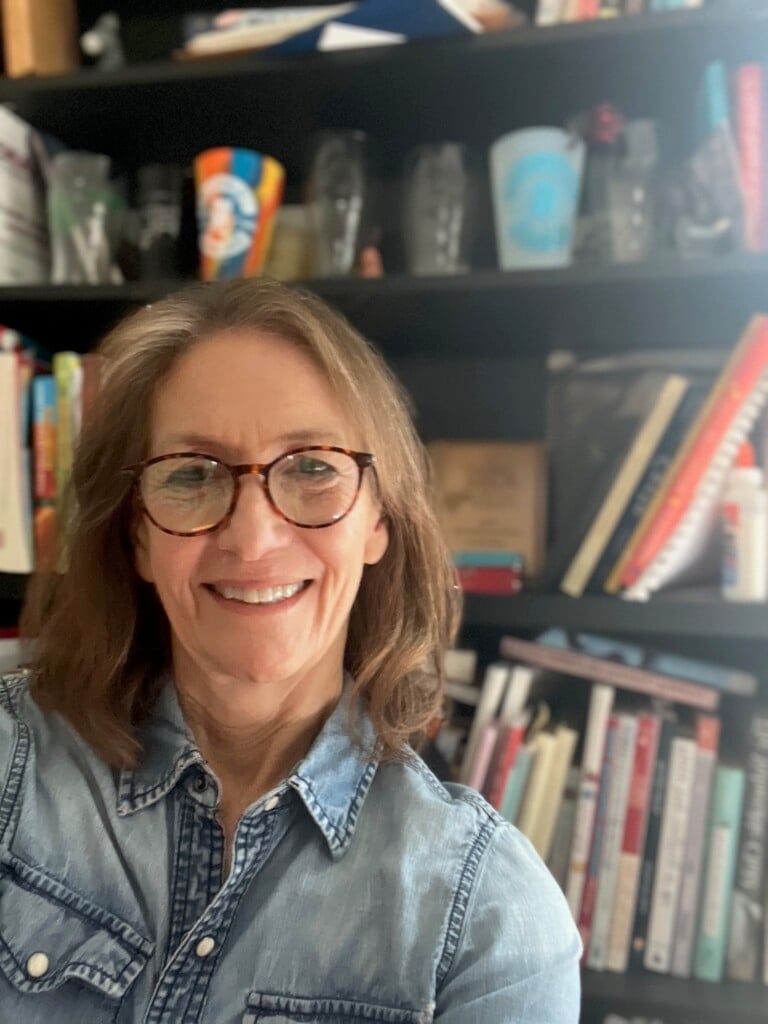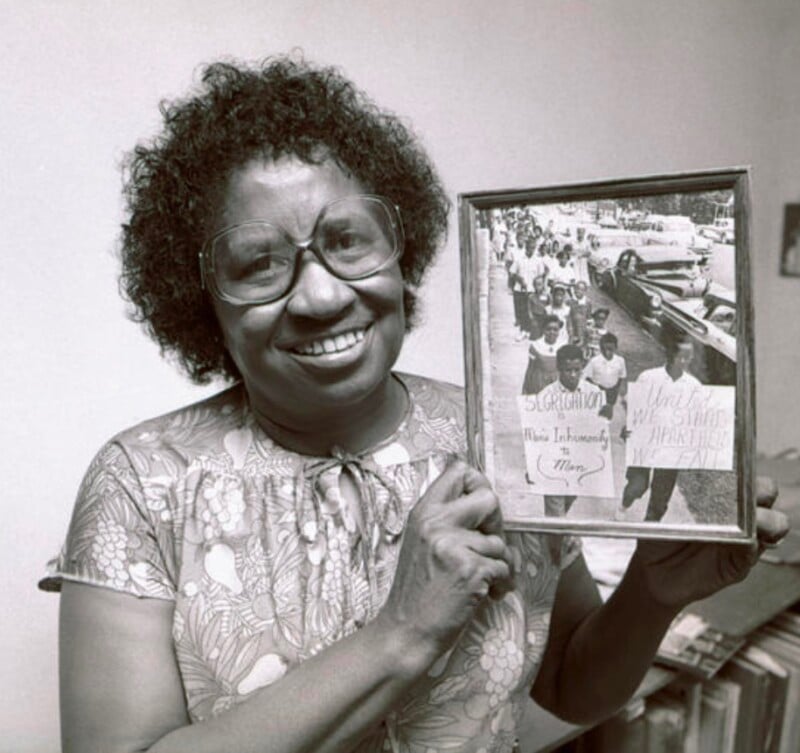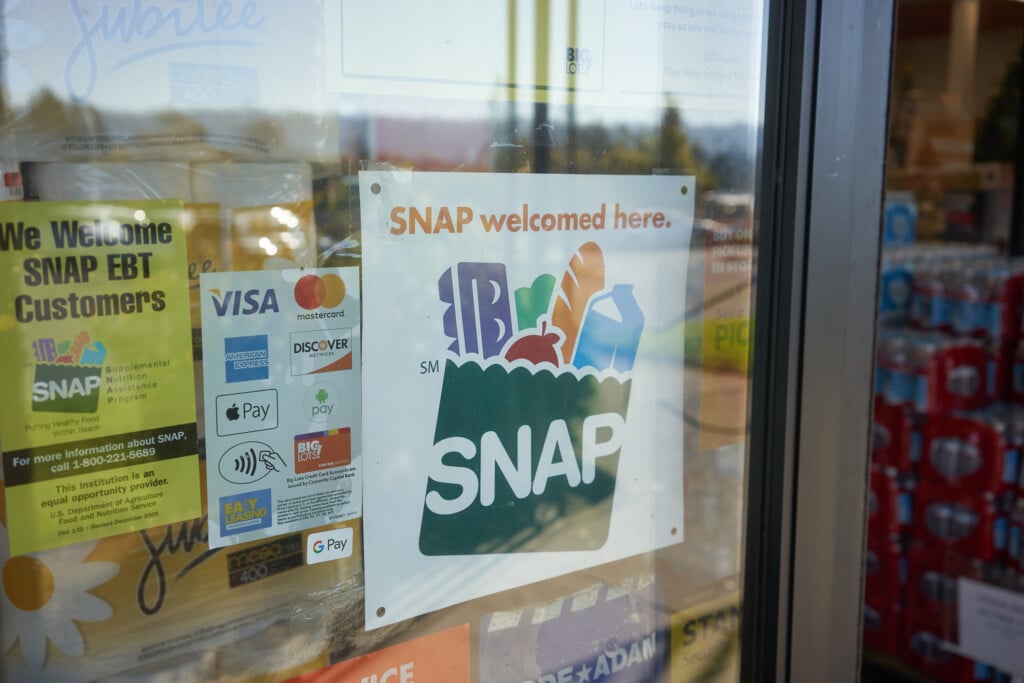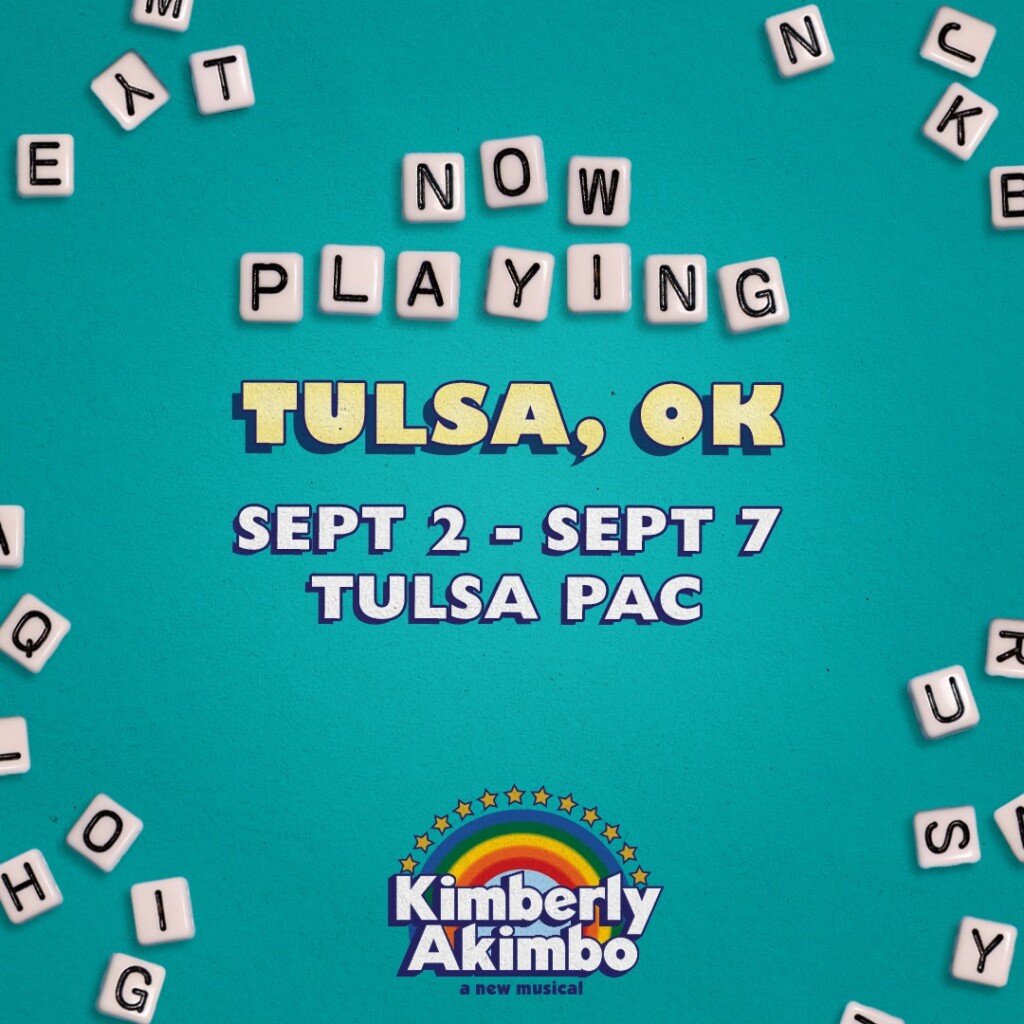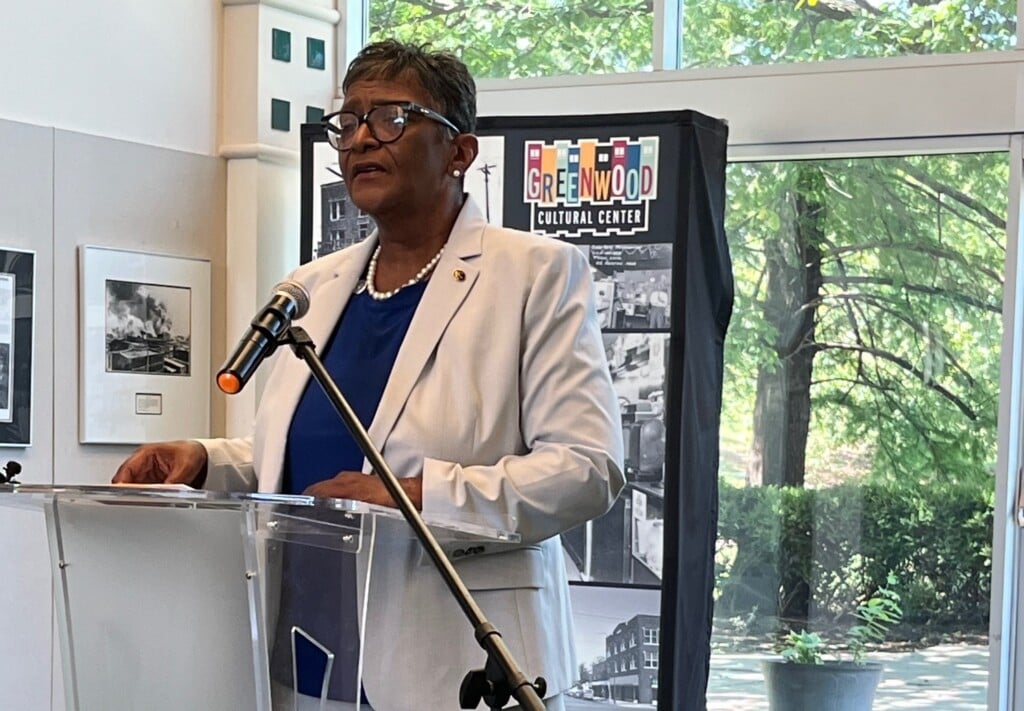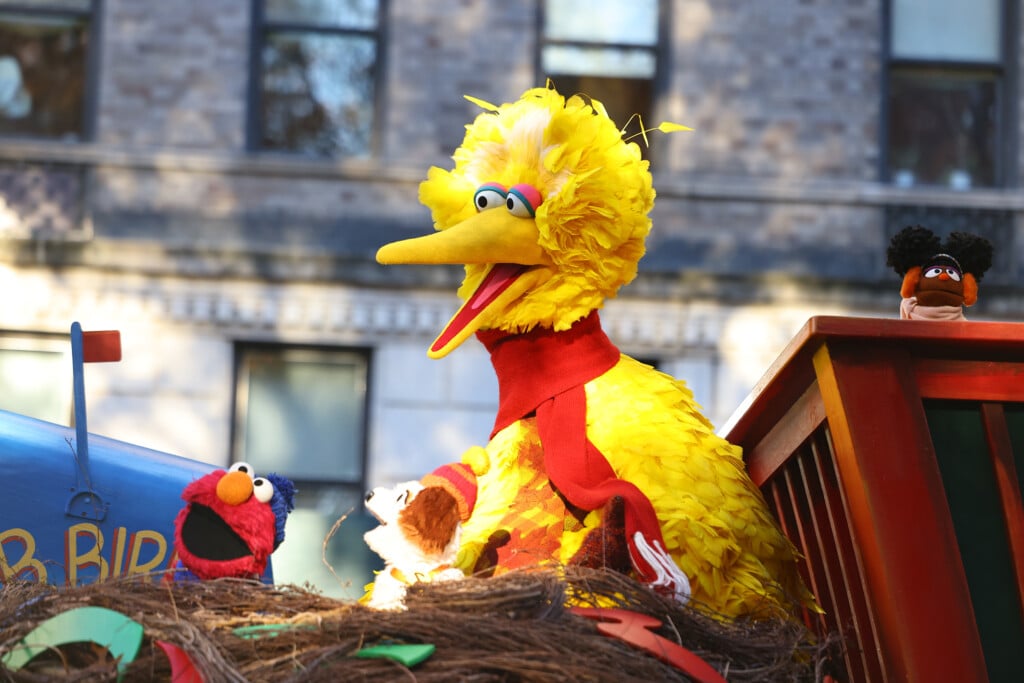“To Kill a Mockingbird” Entertains and Puts New Twist on the Classic Novel
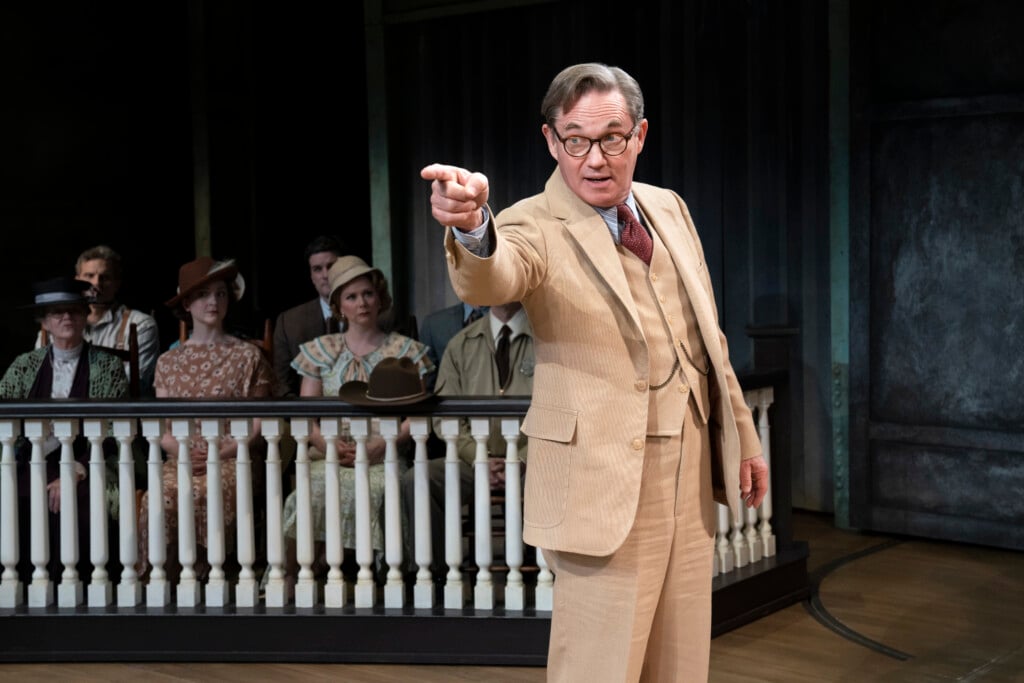
I confess that I have a copy of Harper Lee’s To Kill a Mockingbird on my nightstand because when I read a book with particularly bad writing, I can pick up To Kill a Mockingbird and read a few pages to act as a mental palate cleanser. It’s one of the few books that I’ve read more than once. As a fan of the novel, I was anxious to see Aaron Sorkin’s stage version of To Kill a Mockingbird. I’m also a fan of Sorkin’s work, and I was not disappointed last night.
To Kill a Mockingbird, presented by Celebrity Attractions, and starring Richard Thomas as Atticus Finch, is playing at the Tulsa Performing Arts Center through Sunday, March 31.

Justin Mark (Jem Finch), Yaegel T. Welch (Tom Robinson) and Richard Thomas (Atticus Finch) at a panel discussion organized by Magic City Books and Celebrity Attractions.
In Lee’s novel 6-year-old Scout Finch is the protagonist, and the story is told from Scout’s first-person point of view. Sorkin’s adaptation, however, is decidedly Atticus Finch’s story, with the trial front and center. Scout (Maeve Moynihan), her brother Jem (Justin Mark) and their friend Dill Harris (Steven Lee Johnson) act as narrators throughout the play. It was an interesting shift to pull Atticus’s personal journey to the forefront. Richard Thomas’s Atticus perfectly captures the transition from a comfortable country lawyer who believes in the legal system and the inherent goodness of people to a person who must confront the unfairness of a broken system and his own participation in it. The parallels between Atticus Finch’s case and the Tulsa Race Massacre could not have been lost on a Tulsa audience.
The crackling courtroom drama of a white woman accusing a Black man of assault in 1930s Alabama is the central conflict in the play. But the way that conflict affects the rural citizens, their relationships, and especially the relationship between Atticus and Calpurnia, feel deeply personal and often uncomfortable – a mirror to us. There were a couple of times at the end of a particularly pointed line, expertly delivered, when the full-house audience breathed a collective “ah” of understanding, realization or shock, giving testament to the power or Sorkin’s script and the talent of the cast.

Melanie Moore (“Scout Finch”) and Jacqueline Williams (“Calpurnia”). Photo of Original Tour Cast by Julieta Cervantes.
As serious as the subject matter is, Sorkin’s writing and the cast give real humanity to the characters. As in life, amidst tragedy there is humor. To Kill a Mockingbird provides plenty of opportunities for laughs. The actors playing the children, especially Maeve Moynihan as Scout, embody the loose physicality of children. The easy interaction between Atticus and Calpurnia is witty and fun.
If you have an opportunity to see To Kill a Mockingbird, go. I wouldn’t recommend it for children, but certainly adolescents would relate to questions and issues raised by the Broadway play. Discuss it with your teen. Ask questions. Here are some to think about: Why do you think Bob Ewell makes fun of Atticus Finch’s education and intellectualism? Why does Mayella Ewell lie and spew the same hate as her father, despite his abuse? What does the play say about how we learn to hate others? What finally breaks Atticus’s belief in the fairness of “good” people and the legal system? How does he change at the end? Atticus Finch failed to defend his client. He failed to make changes in the law to allow Black people to sit on juries. He almost failed to protect his own children. Is Atticus a failure? Why or why not? Who are the actual “good people” in the play?
In Sorkin’s writing of To Kill a Mockingbird, the children recognize injustices before Atticus is willing to admit they exist – or at least he’s unwilling to fight injustice outside the system of the law and of the social mores of the South. The children want Atticus to fight, which hints at hope to come in a new generation, a hopefulness alluded to at the end of the play. Only after facing personal flaws, “crawling around in someone else’s skin,” and then acting with other “good people” to fight hate and inequality can change happen.


